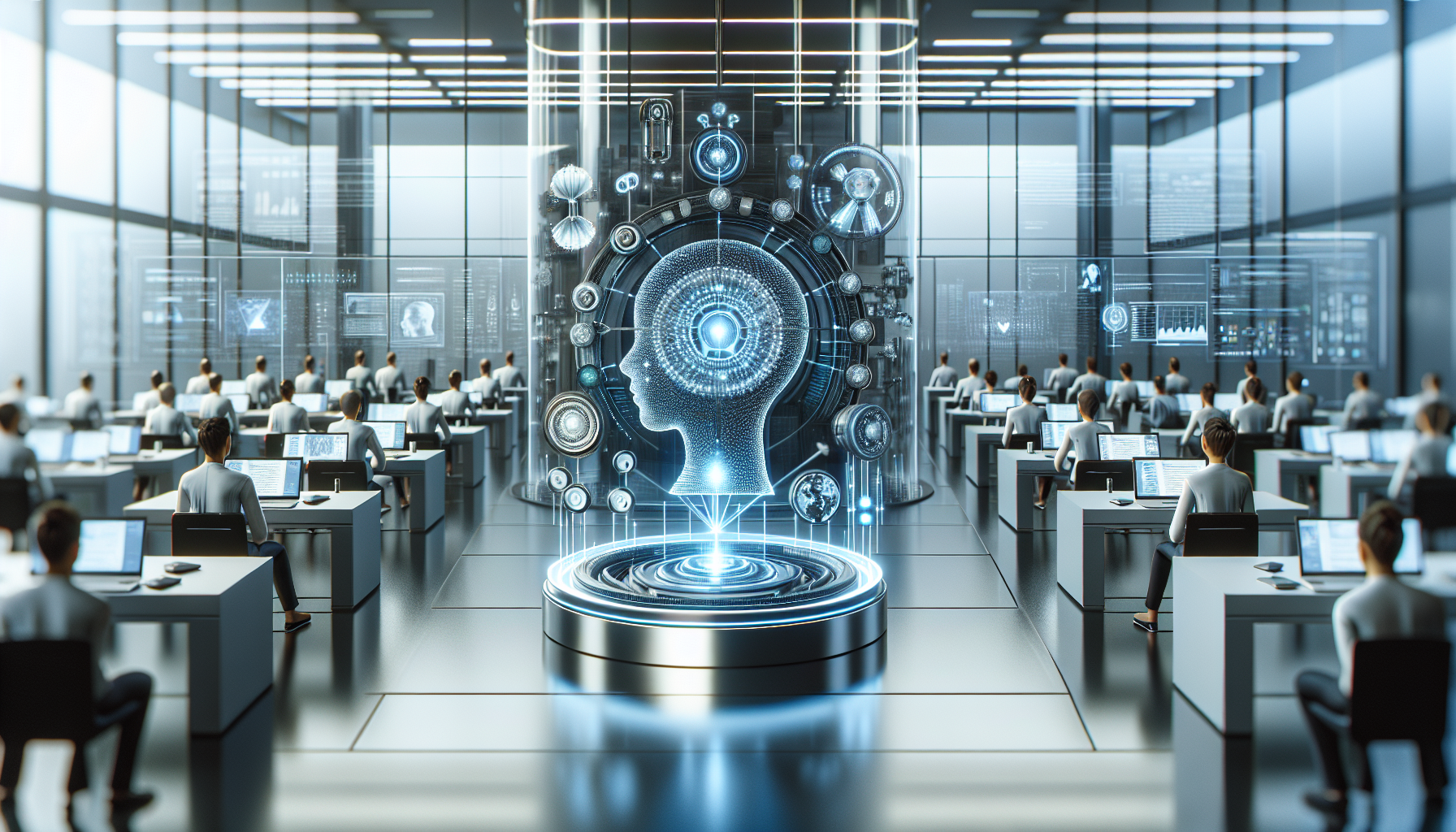
AI in Supply Chain Management: A Case Study of Transformative Efficiency
April 10, 2025
In the bustling world of logistics and distribution, where every second counts and efficiency is the key to success, a revolution is quietly underway. At the heart of this transformation lies an unassuming hero: Artificial Intelligence. Its role in supply chain management is not just about optimization; it’s about orchestrating a symphony of operations that once seemed beyond reach. This story is about how one forward-thinking company harnessed AI to redefine its supply chain, setting new standards for the industry and inspiring others to follow suit.
Imagine a mid-sized electronics company, struggling with fluctuating demands and unpredictable supply chain hiccups. Their mission was to deliver cutting-edge gadgets to tech enthusiasts, but every delay and inefficiency chipped away at their reputation. Their leadership envisioned a future where their operations were as sleek and innovative as their products. Enter AI, the catalyst for change.
The first step in their journey was to address the issue of demand forecasting. Historically, the company relied on a mix of historical sales data and market trends to predict demand. This approach, while traditional, often led to overproduction or stockouts. By integrating AI algorithms capable of processing vast datasets, the company could analyze consumer behavior, market dynamics, and even social media trends. The result was a demand forecasting accuracy that was unprecedented. This precision allowed them to align their production schedules more closely with actual demand, reducing waste and ensuring that customers received their products promptly.
Next, they turned their attention to inventory management. AI-powered systems were implemented to monitor inventory levels in real-time, providing insights that were once deemed impossible. These systems could identify patterns and predict when stock levels for certain components might dip below optimal levels. The proactive alert system minimized the need for emergency restocking, saving time and resources while maintaining a steady flow of goods.
Transportation logistics were another arena where AI made a profound impact. Traditionally, route planning was a manual, time-consuming process that often left room for error. With AI, the company developed a dynamic routing system that considered real-time traffic data, weather conditions, and delivery priorities. This allowed for more efficient use of transportation resources, reducing delivery times and fuel consumption—a win for both the company and the environment.
One of the most remarkable aspects of this transformation was the empowerment of the workforce. Far from replacing human roles, AI became an ally. Employees were trained to leverage AI tools, turning data into actionable insights. This collaboration between human intuition and machine precision fostered a culture of innovation and continuous improvement. Workers were no longer bogged down by mundane tasks; instead, they focused on strategic decision-making and creative problem-solving, further enhancing the company’s operational efficiency.
The ripple effects of these changes were profound. Customer satisfaction soared as delivery times shrank and product availability became more reliable. The company’s reputation as a leader in supply chain innovation attracted new business opportunities and partnerships. Moreover, the lessons learned from their AI journey served as an inspiration for others in the industry, demonstrating that the integration of AI into supply chain management is not just feasible but transformative.
This case study serves as a powerful testament to the potential of AI in supply chain management. It’s not merely about technology replacing human effort; it’s about technology amplifying human potential. The company’s success story challenges us to reimagine the future of logistics and distribution, where AI doesn’t just optimize operations but elevates them to new heights.
As more organizations embark on their AI journeys, one must ponder: How will they harness this technology to not only streamline their operations but also redefine what’s possible? The narrative of AI in supply chains is still being written, and its impact promises to be both profound and far-reaching. What other industries might be inspired to transform in similar ways, and how might these changes reshape the world as we know it? The answers lie in the curious minds ready to explore the boundless possibilities AI has to offer.


